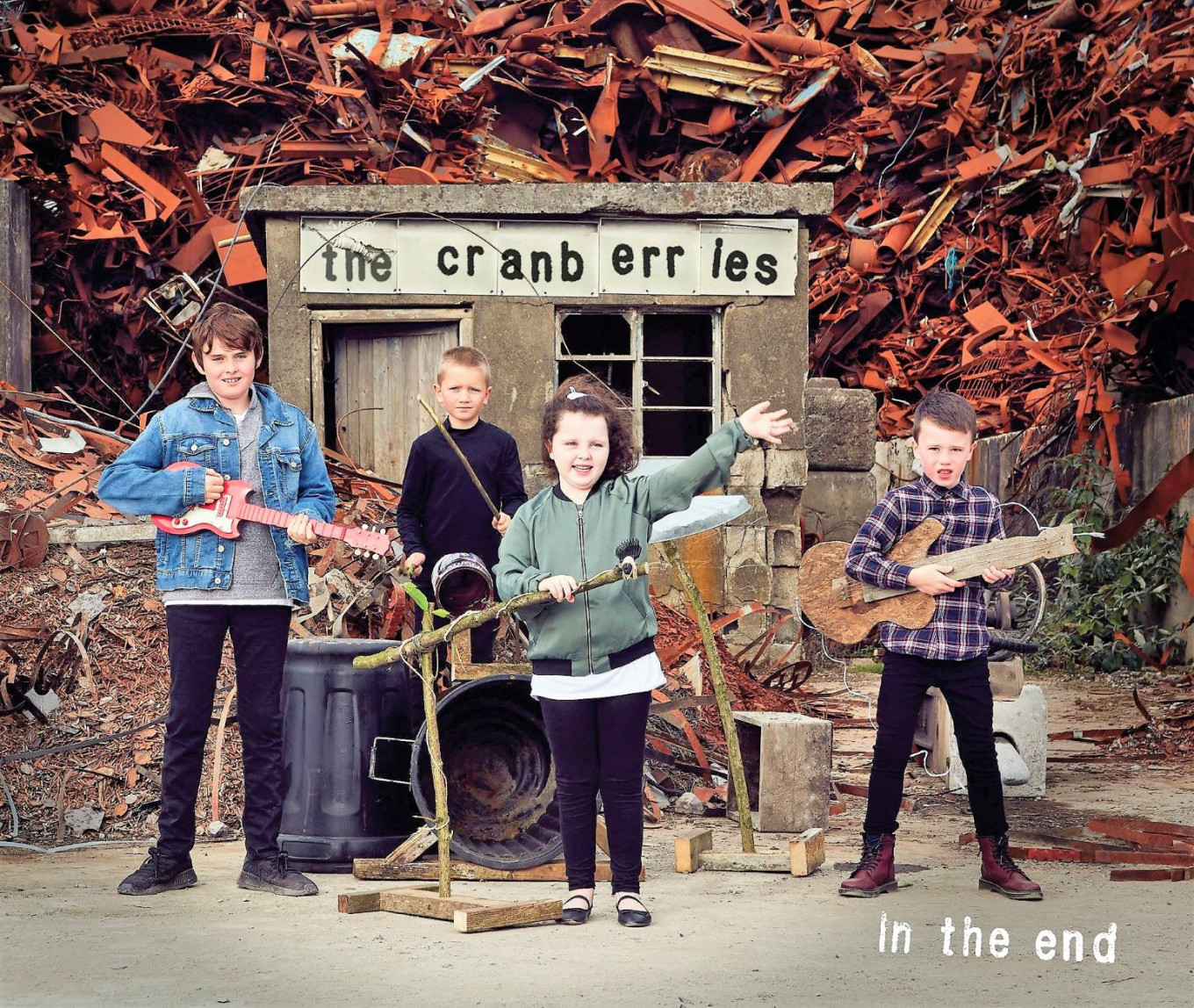Popular Reads
Top Results
Can't find what you're looking for?
View all search resultsPopular Reads
Top Results
Can't find what you're looking for?
View all search results‘In The End’: The Cranberries go out with fitting melancholy
Change text size
Gift Premium Articles
to Anyone
On their eighth and final album, the Cranberries end their journey with a respectable summation of their musical legacy.
Hindsight of course adds a mournful weight to the band's established melancholy flourish, which is found throughout their discography including in songs with a rockier touch, such as the popular 90s hits “Zombie” and “Dreams”.
This time that melancholy shifts between bittersweet triumphant to crystal sorrow. With the death of vocalist-guitarist-songwriter (and undoubtedly the band's most recognizable member) Dolores O'Riordan in early 2018, even the album's title In The End feels elegiac. As do the titles of other songs – “All Over Now”, “Lost” and “Wake Me When It's Over”.
Still, as much as a musical epitaph of sorts In The End may feel like, as a collection of songs in and of itself, the album manages to capture the band's best tendencies. The homogeneous quality found in most of the band's album continues here, in a good way.
The music moves in and out with soothing comfort, rarely trying to gather more complexity than to support O'Riordan's vocals.
That isn't to say that the surviving band members – guitarist Noel Hogan, bassist Mike Hogan, and drummer Fergal Lawler – are invisible. But the Cranberries have always been a band that excelled through efficiency, rejecting flashiness in such an inconspicuous way as to make their 90s peers look like flamboyant rock stars by comparison. Their simplicity is almost punk rock in its modesty.
Here too, that arrangement remains. The rhythm section keeps it simple, with a mature sense of pulling back even when songs, such as opener “All Over Now”, call for something a little punchier.
Mike Hogan's guitar shifts between the dreamy 80s jangle that reflects (most of) the materials from the first two Cranberries records as well as the band's mid-90s slightly rockier approach.
O'Riordan's vocals were not completed during the recording, resulting in the album featuring raw vocal takes (and some that in the production process are known as “guide vocals”, quick takes meant to “guide” the other instruments during recording), as well as assistance from the band's Johanna Cranitch. Some technical editing was involved, though that is not uncommon in any recording.
The result gives In The End, which was recorded with iconic producer Stephen Street, a lot of character. O'Riordan's vocals were always filled with that, but they were also almost-always “perfect” on record.
Here, they retain that same quality but sometimes feel more “as it was”, for want of a better expression. Perhaps it is the way they were originally recorded (the band members were sending home-recorded drafts to each other) but in the moments where the demo-sounding low-fidelity quality of the vocals clearly appear – even masked with studio flourish – they take the songs up a notch.
“Wake Me When It's Over” and “All Over Now” almost sound grungy and “lo-fi” by the time they reach the choruses. “Lost” excels with the Celtic grunge the band is also known for. Her soft, slightly-hushed vocals on “A Place I Know” offer true audio intimacy. Here again, the band's ability to fit their playing with O'Riordan's energy is a sign of musical maturity that is easy to ignore. These songs are some of the record's best.
In terms of overall quality, the record does engage with the same front-loaded approach past Cranberries albums did, in that the strongest and most-immediate songs are offered up before the album begins to take a mild-dive. (This is not to dismiss the strength of lesser-known tracks such as “Icicle Melts” from 1994's No Need To Argue for instance).
However, In The End actually does excel in this sense, with only a few songs feeling a little like fillers.
Indeed, “Illusion”, “Summer Song” and “The Pressure” may not be singles material, but they brim with immediacy, embracing soft simplicity to carry O'Riordan's vocal lines. Whether served with countrified acoustic flourish or alterna-rock strumming against 80s bass, the songs smartly and instinctually never take their focus off the vocals.
In The End has the burden (or gift?) of legacy behind it. It captures all of the Cranberries' strength, their shifts in sound throughout different eras, and pushes them forward, resulting in truly one of the band's strongest efforts in a long while – one that pairs up well with their earliest output. A final album to be proud of. (ste)











